It can be challenging to live and provide water for livestock in the American South West because it is a dry, desolate, and unforgiving environment. Many ranchers near Wilcox, Arizona have only recorded a total combined amount of 7 inches (17.78 cm) of precipitation between 2019-2020. 2021 is not bringing any relief with the National Weather Service already recording the worst drought conditions since the beginning of their record keeping.
For many, these dry conditions would be too much to bear but not for Joe Austin, owner of the 45,000-acre Bar X Bar Ranch. Over the last several decades, Mr. Austin has committed to restoring the over-grazed, eroded landscape along the Arizona-Mexico border.
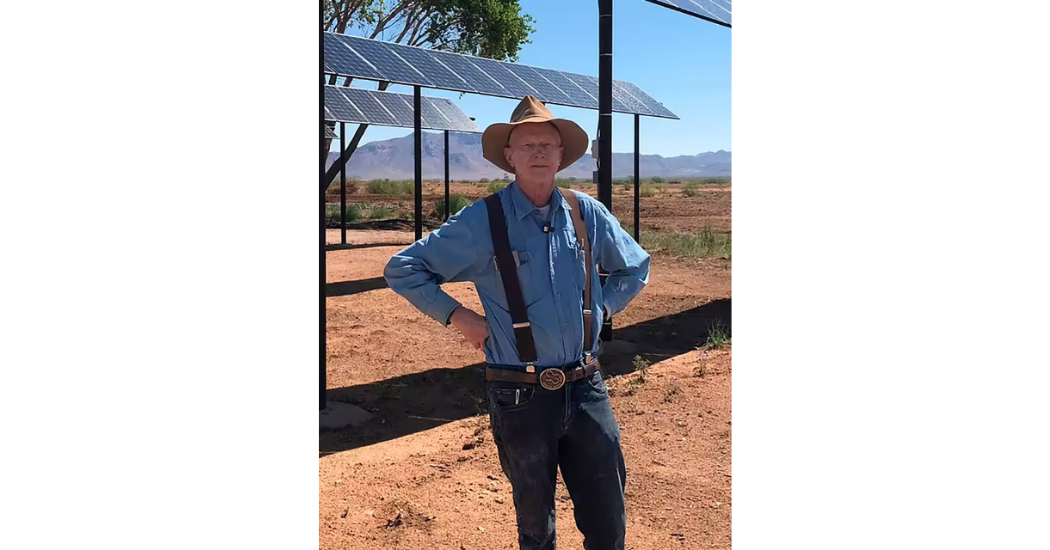
The Grundfos system is far superior to anything I have ever had installed. Grundfos Pumps are the lifeblood of my ranch
Mr. Joe Austin, owner of the Bar X Bar Ranch
A major component of the land restoration is having enough water to reintroduce and maintain local wildlife like turkey, quail, and deer, while also maintaining a drinking water supply for the 450 head of cattle on the ranch.
The situation
Having an adequate water supply and delivery system was key to achieving Joe’s goal of operating a profitable ranch while restoring the native grassland and wildlife. To help achieve this, he constructed and installed a number of systems to capture the little rainfall that fell over the ranch, however, the berms, dams, and rock retention walls could only do so much.
Remote areas in Arizona, such as Wilcox, do not have easy access to power so operating pumps to bring the water to the surface from wells can be costly. Developing the infrastructure to deliver grid power to a remote system can easily cost hundreds of thousands of U.S. dollars. Alternatively, powering pumps with diesel, gasoline, or propane generators requires routine maintenance and repair and the recent rising cost of these fuels was also a deterrent. Joe also considered the environmental impact caused by operating this type of equipment.
He wanted and needed a dependable, low-maintenance system that had the ability to provide the water required to maintain life on his property. Fortunately, a sustainable well had already been drilled at the property, and the challenge was to find the best pump solution to deliver the life-saving water to the multiple livestock watering troughs sometimes miles away from each other.
To overcome these issues, Joe sought the professional advice of the local groundwater professionals at Ingle Well and Pump of Pearce Arizona. David Ingle is a fourth-generation pump system installer, whose great-grandfather started the business in the 1940s. After careful consideration and analysis, all agreed that powering the submersible pump with solar arrays was the best viable option.
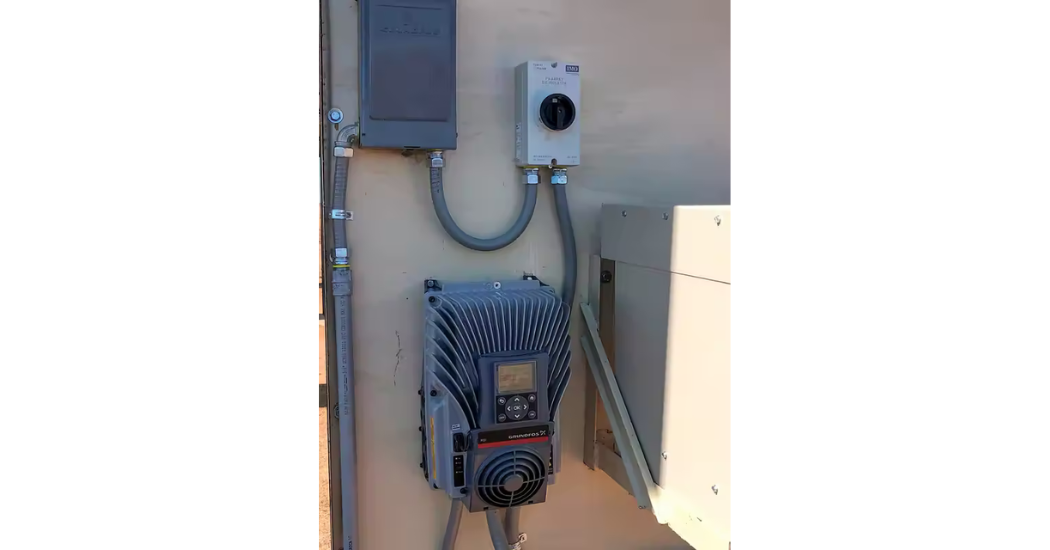
The Grundfos RSI (Renewable Solar Inverter) provides power to the SP pump and motor.
The solution
Once the decision was made to install a solar-powered system at the site, all the pertinent well and system information was gathered so components could be sized and selected. David Ingle used the Grundfos Product Center (GPC) sizing tool to help him make the appropriate product selection. He stated, “the Grundfos GPC makes sizing easy and I can always rely on the completed system to perform like it says it will and more.” The sizing tool specifies the pump, motor, controller, number of panels and details the array wiring sequence and wire size specific to the application.
The Grundfos Product Center sized an SP Submersible pump and motor for the application. Installed with the Grundfos RSI (Renewable Solar Invertor) the 35SP100-38 (35gpm-10 hp) pump could be powered by a solar array. A significant challenge to the system design was the long and varied distances of the multiple watering troughs. The closest trough was less than 100’ (30 meters) and the furthest is close to 5 miles (8 kilometers) away. These long-distance water supply lines made friction loss through the pipe a challenge. Attention to the amount of pressure (Total Dynamic Head) required to physically push the water to each location had to be calculated and taken into account. By considering these requirements when selecting the solution, David could choose a pump that would deliver a longer operating lifespan. By installing a pressure transducer into the system, the pump and motor could adjust its speed and maintain the correct pressure needed to overcome the varying friction losses seen as water delivery is switched from location to location. David Ingle had installed many Grundfos RSI controllers at previous sites and says the “capability of constant pressure with the RSI is a game changer”. He felt confident the designed system would meet the needs of the Bar X Bar Ranch.
The water level in each livestock water trough is controlled with an automated float. Once the water reaches a certain level, a valve is closed and the flow of water is stopped. The water is then diverted to another water trough in a different location for filling. Again, this trough could be miles from the well source. The variable speed feature of the Grundfos RSI adjusts the speed of the pump and motor so that the systems pressure is adjusted to supply water to the new location.
Even with the extreme drought conditions, the supply of ground water and its careful distribution has allowed wildlife to return to the area and a balance seems to be found between modern ranching and the natural environment.
When discussing the ranch’s watering systems, Joe had nothing but praise for the Grundfos pumping system in “The Grundfos system is far superior to anything I have ever had installed. Grundfos Pumps are the lifeblood of my ranch”.
Joe Austin is dedicated to his ranching operation and a firm believer in protecting the environment. Grundfos Solar Pumping Systems have helped him to be successful at both.

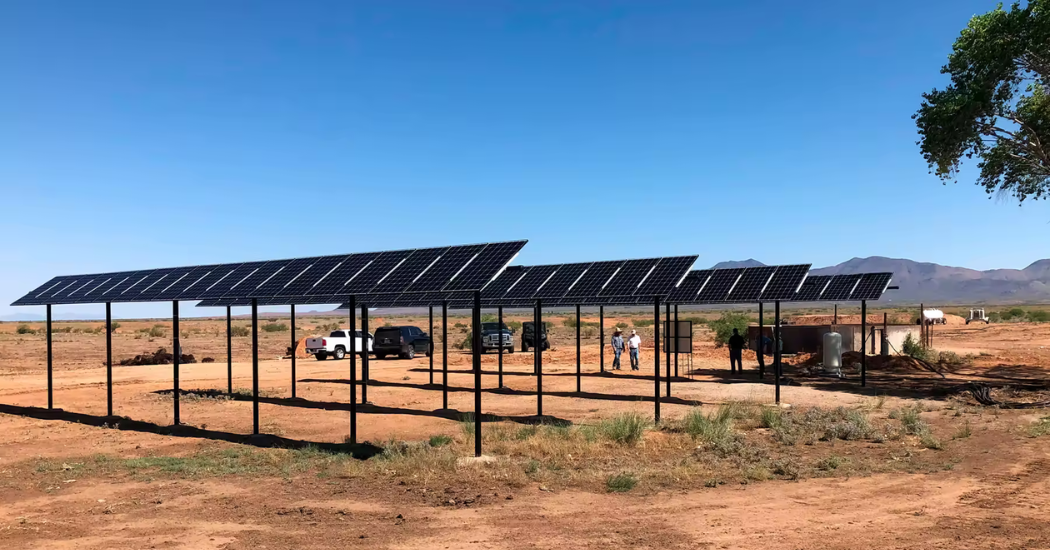

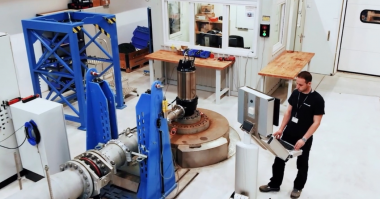
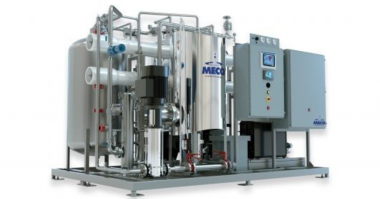
Comments